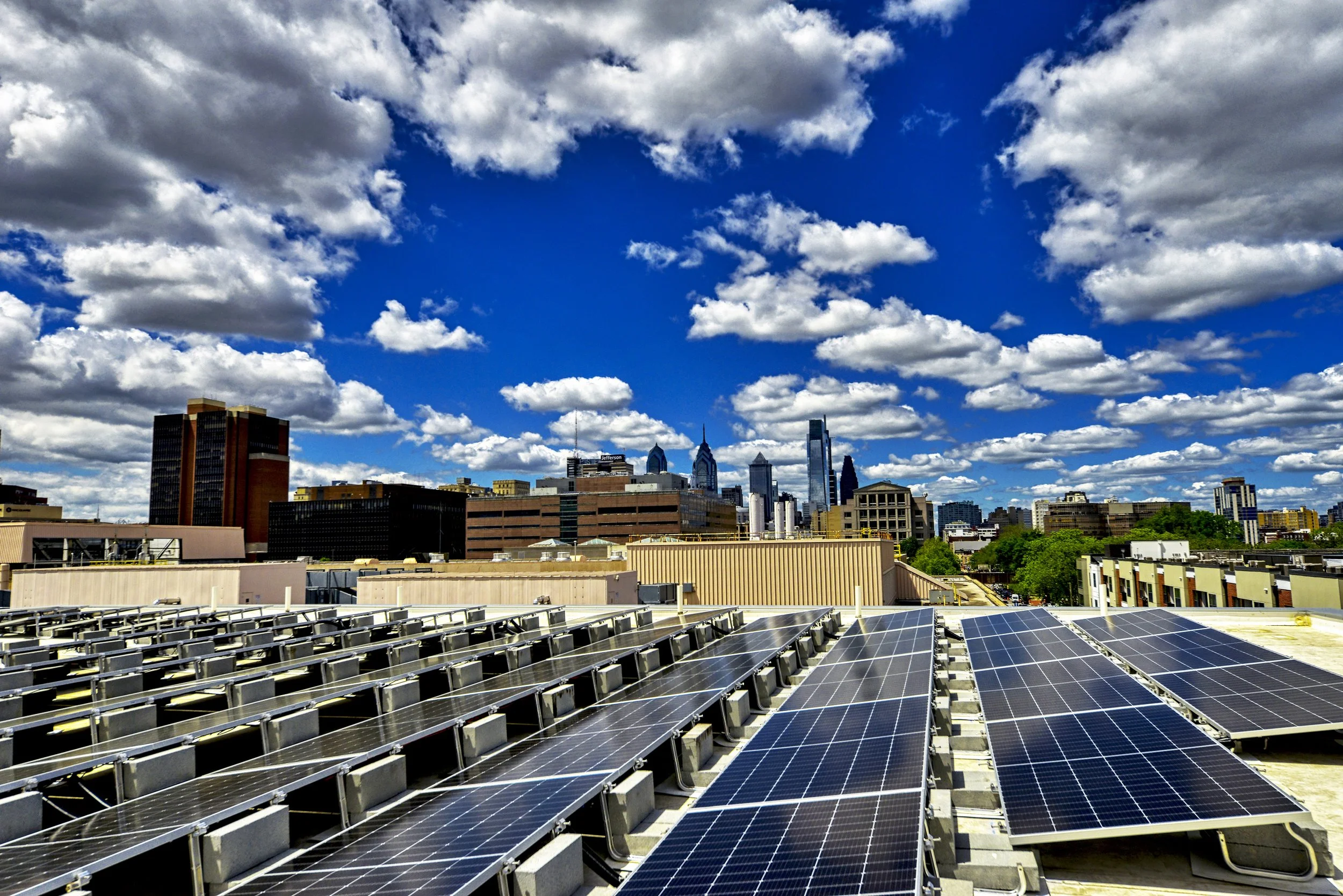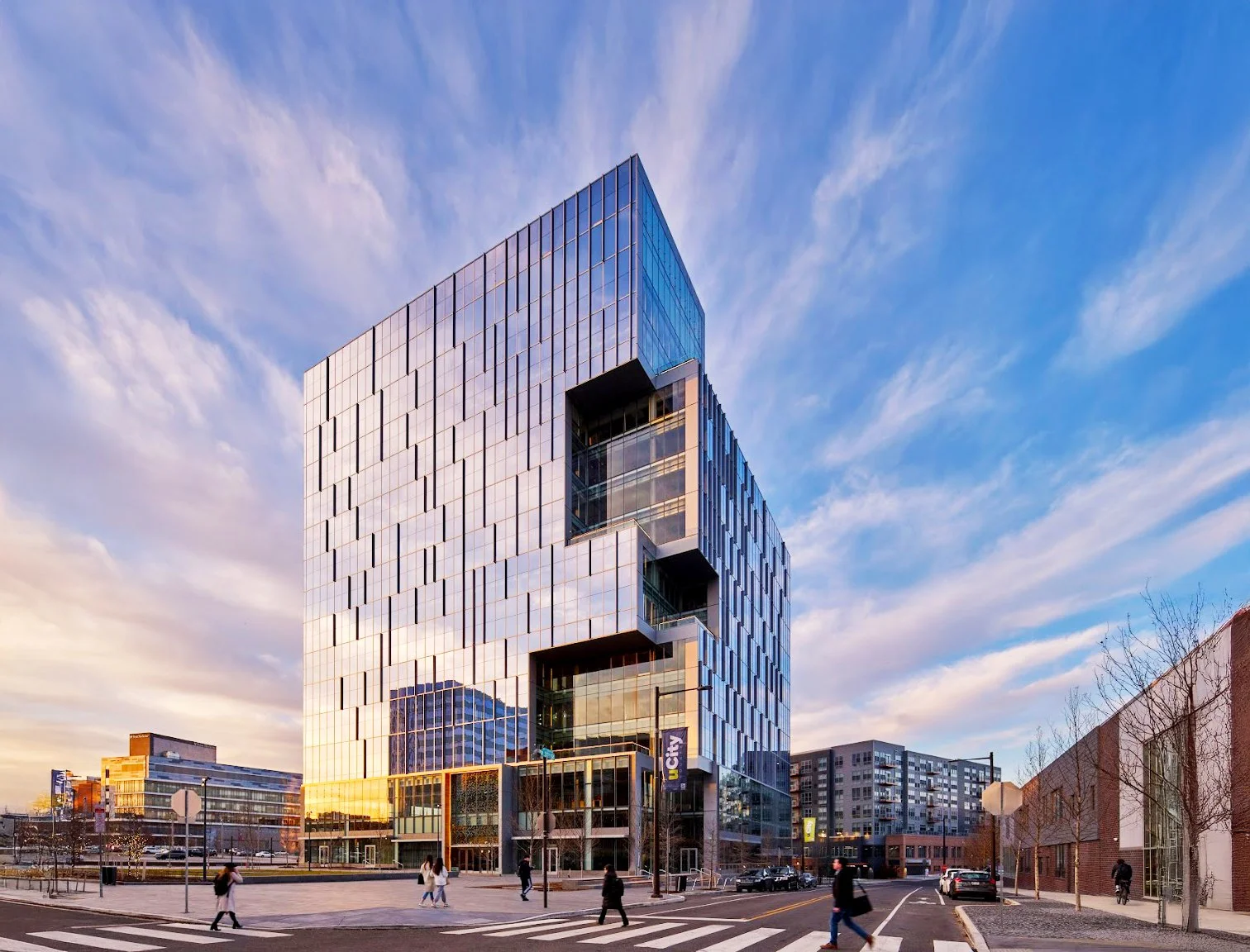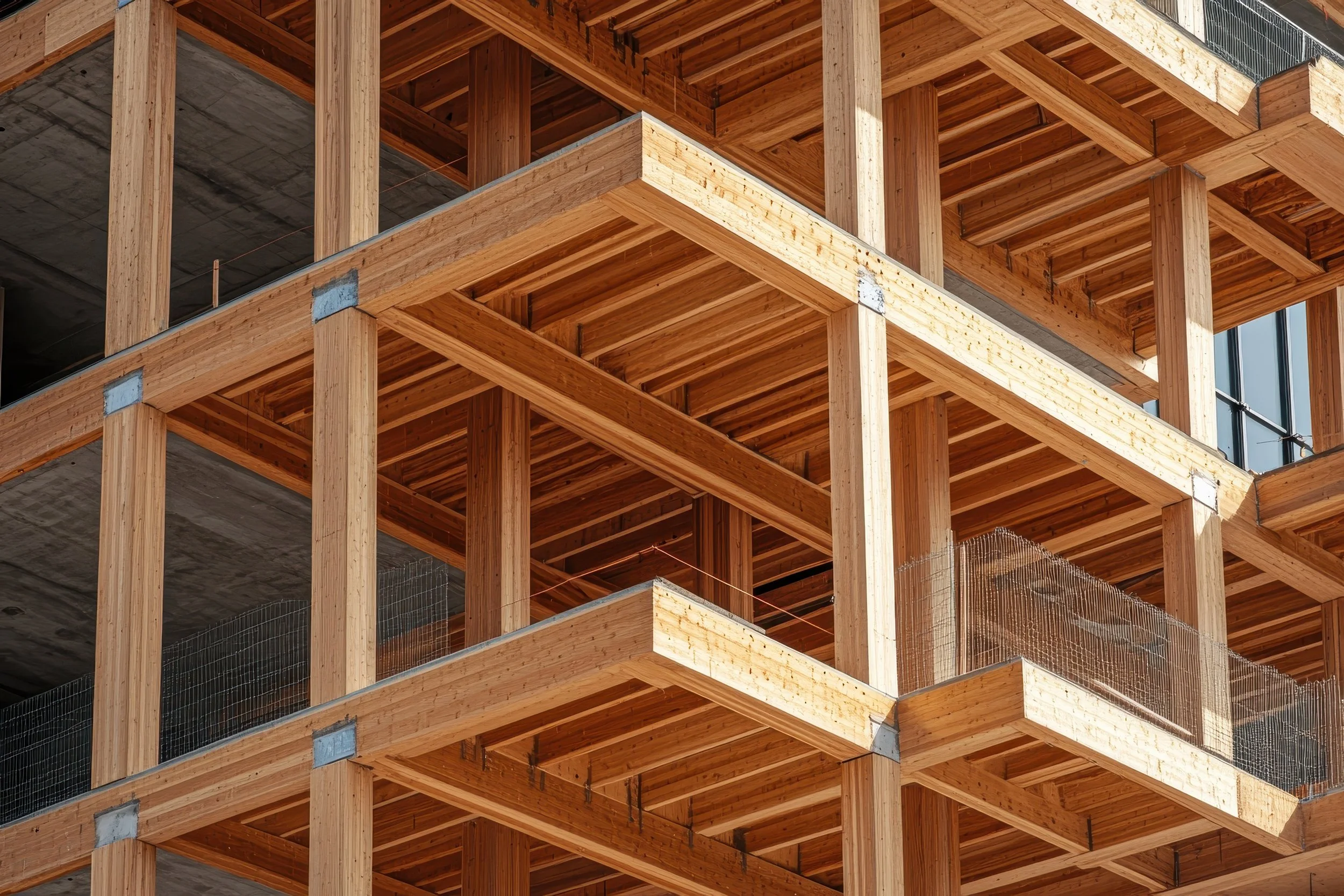Sustainability Action Plan
Designing with Purpose: Our Commitment to a Sustainable Future
Rooted in science, driven by care—sustainability guides everything we do.
I. Opening Reflections
At O Z Collaborative, our commitment to sustainability goes beyond just words; it is embedded in concrete practices that we are integrating into every aspect of our organization through dedicated efforts at both the organizational and project levels.
In light of the current administration’s aggressive rollback of climate action, environmental safeguards, and science-based governance, we as architects must take a clear and principled stand. The deliberate dismantling of environmental protections—along with the weakening of energy standards, the suppression of climate data, and the erosion of public trust in science—threatens not only ecosystems and communities, but the very future we are entrusted to help shape.
Architecture is never neutral. Every design decision is a statement of values—about what we choose to protect, who we choose to value, and what kind of future we believe is possible. At a time when political priorities through federal leadership are shifting away from the urgency of the climate crisis, our profession must respond with resolve. We must lead by example: designing for decarbonization, health, resilience, and equity.
The overt efforts to roll back environmental protections are happening in parallel with troubling assaults on gender equity, LGBTQ+ rights, liberal and humanitarian institutions, the free press and immigrant communities to name a few. These are not isolated policies; they are part of a broader agenda that devalues human dignity, silences science, and divides communities. As professionals committed to the health, safety, and welfare of all people, we cannot separate environmental justice from social justice.
In the face of this coordinated retreat from cultural and humanitarian responsibilities, we reaffirm our values. We stand for a built environment that supports climate action, fosters belonging, and prioritizes those historically excluded. We believe architects must not only design for change—we must demand it, advocate for it, and organize around it. Silence is not an option.
This is a time for courageous, public, and collective action. We are committed to leveraging our experiences and data insights to drive meaningful change within our firm and the broader community as we collectively work towards a more sustainable future.
II. Commitment + Goals
At O Z Collaborative, sustainability is central to our design philosophy and professional responsibility. We believe that those shaping the built environment have a vital role to play in addressing climate change. We are committed to advancing low-carbon, high-performance solutions that contribute to this global imperative. Through our design work and operations, we aim to create lasting, positive impacts on the environment and the communities we serve. For us, sustainability and design excellence are inseparable components of a forward-thinking practice.
The built environment contributes nearly 40% of global greenhouse gas emissions and significantly impacts human health. As architects, we share a responsibility—with owners and stakeholders—to design and build for a more sustainable future.
This Sustainability Action Plan outlines steps we have already taken as well as new steps we’re taking to meet industry goals, including achieving net-zero emissions for all new construction and major renovations by 2030, including signing the Architecture & Design Materials Pledge.
As a proud signatory of the AIA 2030 Commitment, O Z Collaborative integrates sustainable strategies into every project and guides clients towards high-performance solutions that reduce carbon impact and support long-term environmental resilience.
Our sustainability efforts also extend to our internal operations, where we continue to reduce our workplace environmental footprint through improved office practices and ongoing evaluation.
At O Z Collaborative, sustainability is more than a goal—it’s the lens through which we approach every decision and define success. We are building a culture where environmental responsibility is second nature, and every team member is empowered to lead with purpose.
III. Firm Goals
O Z Collaborative is committed to achieving net zero emissions on all new buildings and major renovations by 2030. We recognize the urgency of addressing the environmental challenges we face and are dedicated to seamlessly integrating sustainability principles into our work.
At O Z Collaborative, we prioritize fostering a culture of environmental consciousness and providing comprehensive staff education. This includes empowering employees to advocate for sustainable practices.
IIIa. Firm Culture
Keep all OZC Leadership and staff actively involved and invested in achieving firm sustainability goals
Foster a culture of environmental advocacy through mutual support and shared responsibility by encouraging participation in sustainability focused events, lectures and professional organizations
Maintain active participation and reporting under the AIA 2030 Commitment
Sign and participate in the Architecture & Design Materials Pledge
Continue to optimize office procedures to reduce energy consumption and minimize waste
IIIb. Strengthening Stakeholder Engagement
Engage stakeholders early in the design process
Host workshops and seminars to educate clients
Follow the AIA Framework for Design Excellence
Partner with industry peers to share best practices and advance
broader systemic change
IIIc. Empowering Employee Education and Development
We are committed to expanding our internal training programs to include hands-on workshops and real-world exercises that strengthen sustainable design practices and foster a culture of learning by doing. In parallel, we will broaden our community engagement efforts by extending our volunteer day initiative to include sustainability-focused activities that connect our team with local impact.
Promote office-wide sharing of sustainable knowledge and strategies being employed on individual projects by:
Lunch and Learns
Monthly Project Presentation
Expose staff to best practices, learning, and evaluation tools created by other firms and AIA
Support staff in expanding credentials for LEED, Passive House, etc. and help support continuing education efforts.
Train staff in the use of design-based energy modeling software.
IIId. Operations
Reduce the office CO2 emissions by buying clean energy through our provider
Install Solar PV’s on our roof
Advocate for biking to work by providing protected and covered bike storage
Track annual carbon footprint and aim to reduce energy use by 5% and water use by 2% annually – pull utilities annually to track data
Propose an annual volunteer day with a local charity to support our local community and environment
IV. Project Goals and Standards
O Z Collaborative is committed to a design approach that prioritizes people and the planet. Through updated design processes and project standards, we aim to create buildings that minimize environmental impact and promote a healthier future for communities.
We will integrate energy modeling into our standard design process and encourage the specification of healthier and lower-carbon materials during our material selection process.
IVa. Project Delivery Process
Pre-Design (PD Internal)
Conduct internal review of sustainable design principles with entire design team and establish goals to present to client
Schematic Design (SD):
Conduct sustainable design workshop to establish goals with client
Advocate for adaptive re-use to reduce embodied carbon impacts
Create preliminary energy model
Begin certification process
Design Development (DD):
Assess progress towards goals set in SD
Collaborate with consultants to achieve energy performance goals
Refine energy model with input from design team and mechanical engineers
Select healthy and low-carbon materials
Construction Documents (CD):
Ensure final design reflects goals
Refine energy model and review performance
Specify healthy and low-carbon products
Construction Administration (CA):
Confirm sustainability goals and design intent is carried through
Post Occupancy:
Collect post occupancy information on energy use
Administer a lessons learned and share with staff, stakeholders, and client if possible
IVb. Enhancing Project Standards
Continue to assemble a library of sustainable design strategies for both new and existing buildings
Implement a sustainability "checklist" for all projects
Continue to develop a standard specification for low-carbon materials and building systems
Create a graphic library of air-barrier continuity details, thermal breaks, insulation, etc.
Meet client goals while meeting internal guidelines, shadowing a specific sustainable building standard, or pursuing full third-party certification
Implement sustainable construction standard for site preservation
IVc. Pursuing Project Certification
Advocate for and support sustainable building certification
Pursue projects with sustainable certification goals
Encourage clients to pursue project certification early in the design process
Collaborate with consultants to support project certification
Enhance our internal capacity by supporting employees' path to accreditation
V. Reporting/Tracking
At O Z Collaborative, we ensure transparency by tracking progress and adapting goals. This ambitious approach is integral to driving continual improvement in environmental performance. We will recognize and celebrate milestones achieved in sustainability through internal awards, newsletters, and social media posts, showcasing our firm's commitment to sustainability and inspiring others in the industry. We will also maintain transparency by regularly sharing progress reports internally and externally, demonstrating accountability and maintaining stakeholder trust.
Va. 2030 Commitment Reporting
OZC will record the following information for each project
Predicted Energy Use Intensity (pEUI) - for any project with envelope or HVAC scope
Lighting Power Density (LPD) – for any project with lighting scope
Report project information to AIA 2030 DDX annually in Mid-March
Project teams will be responsible for keeping a record of key project information for upload to the DDX
Quarterly project energy updates will be implemented to ensure that each project receives the dedicated attention it merits
Vb. Accountability
Report new projects at monthly staff meeting and identify opportunities for sustainable design
Share project pEUI during project updates at monthly staff meeting
Evaluate pEUI reduction against 2030 goals and make necessary adjustments - Current target is 80% reduction from the baseline - In 2025 the target will be 90% reduction from the baseline
Vc. Revising Sustainability Goals
OZC will revise the sustainability action plan bi-annually
Solicit feedback from all members of the firm on the implementation of sustainability goals
Evaluate progress towards goals and identify opportunities for improvement
VI. Summary
At O Z Collaborative, sustainability isn’t just a goal – it’s our guiding principle. Along this journey, we’ve gleaned invaluable lessons and recognized that each challenge presents an opportunity to learn, adapt, and innovate towards a more sustainable future.
VIa. 2024-2025 Accomplishments
Operations
Expanded our recycling program to include material samples, electronics, and paper
Introduced composting of food waste
Installed rainwater collector for watering backyard plants
Fostered office plants to improve indoor air quality and reduce stress
Transitioned to plastic-free lunch and learns
Implemented new policy to encourage employees to commute using public transit by covering 50% of public transit costs
Transitioned to using compostable utensils and plates for office events
Employee Development
Six members of the firm attended Greenbuild 2024 and presented insights to the rest of the firm
Project Delivery
Achieved LEED Gold certification for One uCity Square, a 389,000 SF new lab/office building
Tracked completed Cove Tool energy model for WCRP Linda Lockman King Project and shared results with owner team
Tracking LEED Gold for a ReBuild Project at Vogt Rec Center in Philadelphia
Community Ventures completed Old First House, an energy-efficient supportive housing project for previously homeless individuals and attained Enterprise Green Communities and Zero Energy Ready Home certifications. As architect of record, OZC designed Old First House to Passive House standards, ensuring an energy-efficient building even without formal certification.
Created Pre-Design modeling in Cove Tool for the new Al Aqsa Mosque and Academy in Northern Liberties.
Implemented in-house energy modeling to gain insights into predicted energy use intensity









